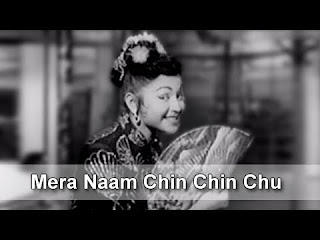Dev Anand was not just the man of success & talent but also a man who had the ability to think. He used to sound like a philosopher. He was well educated and a creative man. His temperament and attitude to face life are extraordinary that made him such a great person. We all talk about his films and songs but in this Blog, I look at the intellect and philosophy of this great hero of Bollywood
In his Auto Biography, he says about becoming an actor "I knew I had that quality, for my mirror always told me, as it lit my reflection in it every time I looked into it, with a chorus of angelic voices, wow! Let the world see you"
On Life.
a philosophy which Dev Anand, a non-smoker, was said to live by. “Har Fikr ko dhue mein udhata chala gaya,” which roughly translates as: “I puff away the worries with the smoke.”
"For me, today is exciting. This moment is exciting. This film I am making is exciting. The past is only where I came from. The present counts.”
"You are dead the moment you stop dreaming"
I get turned on by anything I find beautiful my greatest necessity is to be activated all the times my strength is my inborn optimism.
On Looks and Style
“There’s no Dev Anand style. If you like yourself, you are going to conquer. That’s self-confidence.”
About a star
A star is a man who is known. That’s all, people look forward to seeing him, listening to him or viewing him. A star is not necessarily a 25, 26, 36-year-old young lad with youth giving him good looks, which will fade away. The first important thing is personality, personality stays.
On his dialogue delivery (Why he spoke so fast).
“Life is too short, I don’t have time to speak slowly. My life is without full stop”
What keeps you moving
It’s the mind which is ticking all the time, if the mind is alert and mind is moving, your mind never gets tired, your body does. My mind is the mind of a creator. One never grows old, one just grows, matures and dies.
On his mannerism
“I speak fast and so I spoke my dialogues fast. I have a stoop and that explains the way I held my body. I walk fast and that explains my movement.”
On Fear
I don’t have any fear... even death... if it comes, I will take it.
How he finds a story for a film
Stories are all around us. In newspapers, in trains, in markets… "Wherever there are people, there are stories.
About discovering Talent
"Dev Anand doesn’t discover anybody. They find Dev Anand".
On his Flop films
To my mind they are all hits, monetarily, they have not earned big money but that does not mean they are bad pictures.
After a debacle of Ishq Ishq Ishq
"A broken nose sometimes makes a great boxer"
“My life is the same and I am at a beautiful stage at 88. I am as excited as I was in my 20s.”
On his 88th Birthday
“I am always in a rush because time is slipping away and I am chasing it, chasing it. I have so many stories to tell but where is the time. I wish I am born again as Dev Anand and people will see a young star 25 years later. That will give me some time to finish what I want to do,”
Dev Anand also gave us a most profound philosophy : “Zindagi Ek Khayal Hai Jaise Ki Maut Bhi Ek Khayal Hai, Na Sukh Hai Na Dukh Hai; Na Deen Hai Na Duniya; Na Insaan Na Bhagwan ...Sirf Main Main Main..You have to detach yourself to go further...”.
Let's Watch Some Of the Philosophical Songs from his films
Song of Hum Dono 1961
Song of Munimji 1955
Song of Guide 1965
Song of Guide 1965
Song of Bambai Ka Babu 1960
Song of Nau Do Gyarah 1957
Song of Solva Saal 1958
Song of Kala Bazar 1960
Song of Baat Ek Raat Ki 1962
Song of Gambler 1971
Song of Joshila 1973
















